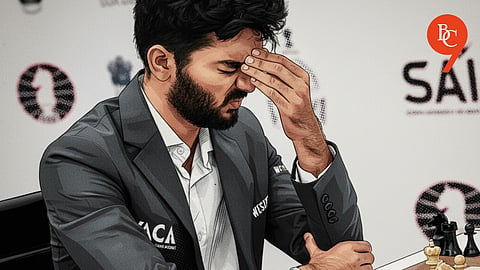

The Chess World Cup witnessed a massive upset on Saturday as reigning world champion D Gukesh suffered a third-round exit in Goa. The top seed was defeated by Germany’s Frederik Svane, who capitalized on an unusual opening by Gukesh to register his career’s biggest victory. Svane, rated 123 ELO points below Gukesh, won in the second game of their 64-player match after the first game ended in a draw.
Svane's victory grants him entry into the exclusive Mikhail Chigorin Club, which lists players who have defeated reigning world champions in classical games during their reign. Speaking after the win, Svane admitted, “I’ve never played such a strong opponent. Beating Gukesh was special.” The game proved dramatic, with Svane overcoming severe time trouble, even playing a move with just one second remaining on his clock, while Gukesh ultimately resigned in 55 moves after a king blunder on move 51 more or less handed the game to his opponent.
The day brought mixed results for the large Indian contingent. Gukesh became the third Indian eliminated in Round 3, following the exits of Diptayan Ghosh and M. Pranesh to higher-ranked opponents. However, four Indians successfully secured their spots in the Round of 32. The qualifiers of the day include the experienced Harikrishna Pentala, World Junior Champion Pranav V, and the second and third seeds, Arjun Erigaisi and R. Praggnanandhaa.
Praggnanandhaa’s attacking play was a highlight. The 20-year-old Chennai grandmaster (2771 Elo) prevailed over Armenia’s Robert Hovhannisyan in 42 moves, taking 3 hours and 44 minutes. Pragg, who had fought a herculean effort to survive his initial Round 2 tie-break against Temur Kuybokarov, expressed satisfaction with his performance, stating, “I am happy with my game today as things went as I planned.”
Earlier tie-breaks also saw Vidit Gujrathi advance after facing the World Cup's youngest-ever participant, 12-year-old Argentine prodigy Faustino Oro. Vidit admitted the match was "not an easy match," and praised the new generation's style: "The way they play chess is very different because they have grown up with computers and have a lot more exposure than previous generations."
